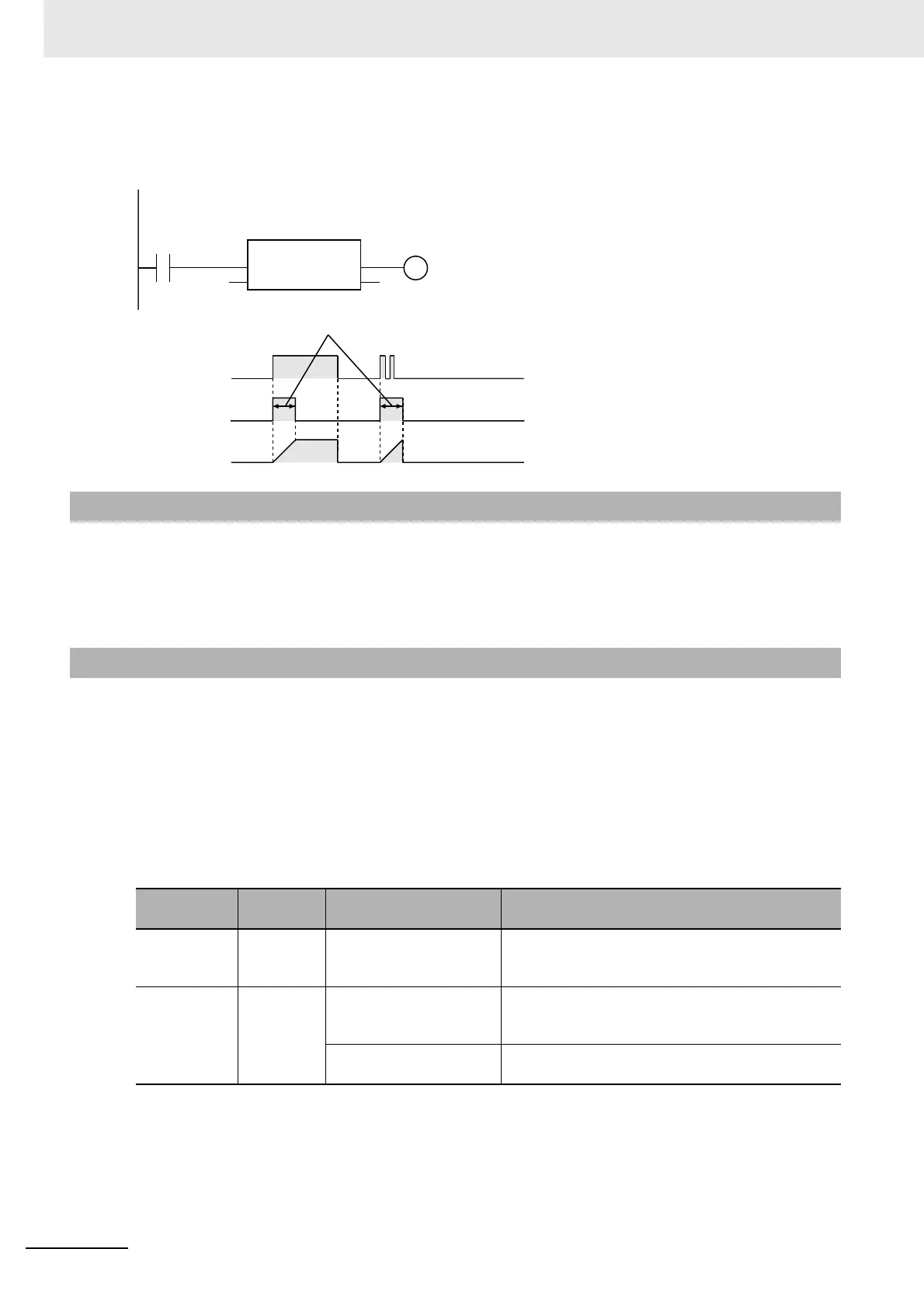2 Instruction Descriptions
2-124
NJ-series Instructions Reference Manual (W502)
The following figure shows a programming example and timing chart for a PT of T#10ms. Variable abc
changes to TRUE as soon as variable A changes to TRUE. Variable abc changes to FALSE 10 ms later.
• Use the TON instruction (page 2-116) for a timer that starts when In changes to TRUE and then
changes the timer output to TRUE when the elapsed time reaches the set time.
• Use the TOF instruction (page 2-120) for a timer that starts when In changes to FALSE and then
changes the timer output to FALSE when the elapsed time reaches the set time.
• ET and Q are updated only when the instruction is executed. Therefore, Q does not change to FALSE
precisely when the elapsed time from when the timer starts reaches PT. Q changes the next time the
instruction is executed after the elapsed time from when the timer starts reaches PT. The change in Q
can therefore occur with a delay of up to one task period.
• Set PT and ET in nanoseconds (ns), but remember the timing accuracy is 100 ns.
• The timer starts as soon as operation starts if In is already TRUE.
• If T#0ms or a negative number is set for PT, Q will not change to TRUE even if the value of In
changes to TRUE.
• You can change the value of PT while the value of In is TRUE. Operation is as follows:
• If this instruction is in a master control region and the master control region is reset, timing is contin-
ued to the end if the timer is operating. Then, the value of ET changes to 0 and the value of Q
changes to FALSE. However, if an Out instruction is connected to Q, the execution condition to the
Out instruction is FALSE even if the value of Q is TRUE.
Additional Information
Precautions for Correct Use
Timer status Value of Q
Value of PT after it is
changed
Operation
After comple-
tion of timing
FALSE --- The value of Q remains FALSE.
The value of ET also does not change. (It remains at
the value of PT before it was changed.)
Timing in
progress
TRUE
PT ≥ ET Timing is continued. When the value of ET reaches
the value of PT, the value of Q changes to FALSE
and ET is no longer incremented.
PT < ET The value of Q changes to FALSE immediately.
Incrementing ET stops immediately.
TP_instance(A, T#10ms, abc, def);
LD ST
abc
A
def
T#10ms
TP
In Q
PT ET
TP_instance
In=A
Q=abc
TRUE
FALSE
TRUE
FALSE
ET=def
PT=T#10ms

